- Home
- Stephen Hunter
I, Sniper Page 5
I, Sniper Read online
Page 5
“He must have done it right away,” said Chandler. “There’s rigor in the limbs, so he’s been gone a long time. Maybe right after he checked in.”
“He knew it was all over,” said Ron. “He had no place to run. Besides, he completed his mission, he got to ninety-seven. He’s the champ again.”
6
As in Vietnam, the rains came. It was the season. They fell almost horizontally, sopping everything, turning the earth to gruel, squeezing mud up and over shoes. It was a penetrating rain, and nobody got away from it or didn’t feel its chill.
Swagger stood apart from the others and watched the box that contained what remained of Carl Hitchcock go into the ground. He hadn’t known Carl, as Carl had finished his sniper’s tour before Bob started his; afterwards, in the melancholy aftermath of a lost war, things turned and stayed strange for the longest time, and the two never came upon each other, though they cut trail often enough.
Then, the odd thing: in slow, steady increments, Carl got big. Being number one, at anything, still mattered in this country, and a book came along, some articles, and soon enough Carl was adding to his pension by standing still for autographs at gun shows and being beloved as the avuncular “Gunny,” a pop-cult stereotype with a background in real bloodletting that made certain no one ever laughed in his face and, stamping him a member of the killer elite or a knight of a round table, depending on your politics, would only permit other snipers or shooters in his presence; those who had not shot for blood felt quietly driven out and shunned.
Then, another thing, wholly unpredictable: what might be called “tactical culture.” Because of Carl or in spite of him or completely apart from him—who knew? but for some reason—a fascination with the designated life takers, the sanctioned force appliers, took root. The new man was the sniper, the commando, the CQB professional, the pistol jockey, the long-range hitter. Magazines like Soldier of Fortune and SWAT and Combat Handguns came alive, and serious men consumed reams and reams of paper debating such issues as “9mm v. .45 ACP” or “Instinct Shooting: Lifesaver or Fool’s Folly?” The fascination took hold of a certain demographic, some professional, some dreamers, but all obsessed with a kind of ideal warrior in an ideal gunfight. The core of the culture was equipment fetish, and soon enough boutique providers were turning out dedicated sniper rifles, pouches, straps, gizmos of all shapes and purposes, whole lines of tactical clothing, headgear, watches (always black), boots, vests, holsters with elaborately engineered snaps for security on the one hand and quickness of draw on the other. Carl was somehow the professor emeritus of this world, its guru, its revered elder. And it fed him, as he rode sniper chic to a nice enough income with his seminars for law enforcement marksmen, which he put on all over the country. He became at the same time a kind of sniper social worker and spent more than one night talking to someone who’d blown a shot or frozen at the ultimate moment. He counted again. He loved it. Who could blame him? Human nature being what it was, it was more fun to spend a retirement beloved than ignored.
But it had come to this: a civilian graveyard on the outskirts of Jacksonville, North Carolina, a wet fall day, a few disconsolate loners standing about in what appeared to be a crowd but was not, really, as no one pressed close; it was just a group of individuals standing in an almost-crowd. Some generic holy fellow read from the book but added nothing other than God’s pro forma respect for the dead. No one from the United States Marine Corps attended.
How could they? Carl was deranged marine sniper, Carl was combat-shocked vet, Carl was crazed gunman, Carl was disappointed, depressed soldier, in the words of a prominent newspaper in New York that thought it was all right to call marines soldiers. So the Corps sent no one officially, despite all that Carl had given the Corps. That seemed wrong to Bob, but what did he know of such things and the way they turned out.
Again, like a Faulknerian blood curse, an original sin of violence and oppression, the hideous adventure that was this country’s misguided path in Vietnam in the late 1960s reaches out to claim yet more lives. Let it be written, that the tragic marine sniper Carl Hitchcock, once a hero and now an alleged murderer, is the last casualty of that war and that it can kill no more. Let us hope we are at last safe from it.
But let the Vietnam War stand also as a warning to further enticements in far-off lands; there have been a few since. The temptation to solve with violence that which cannot be solved with diplomacy is powerful, yet always wrong. Victory or defeat make little difference in the end. War turns heroes into Carl Hitchcocks with kills 94, 95, 96 and 97 the civilians who were only trying to save him. They are victims, but Carl Hitchcock was the tragedy, constructed by a culture that seeks its answers in high-velocity bullets.
That was the New York Times editorial page.
Bob hadn’t read any others online; he didn’t have the heart to, and it was another of his resentments that Carl had somehow become the platform for the eastern asshole press, and he doubted there was a man in an eastern press editorial room who’d been in Vietnam at all, much less as a marine, and yet somehow they were the ones who felt entitled to sound the words and play the bugle.
He tried to shake it off.
Getting old, all beat and cut to hell.
He still walked with a limp from a bad cut picked up a few years back. His hair was gray, his face bleak, his body old and achy. He’d been shot at a lot, hit a few times, and one of his hips was cold steel, five degrees icier than the weather every single day, always a reminder of how things can go wrong. But all that said, it was true too that he had it made.
He was sort of rich. He owned seven lay-up barns throughout the West and drew a good percentage from each with not a lot of overhead; his wife ran them beautifully. He had pensions from the marines as well as disability pay, so there’d always be enough money. He lived in a beautiful house outside Boise that looked across meadows to mountains. He had a few good horses, a few good rifles, a few good handguns, and a damned comfortable rocking chair on the porch. He had an all-terrain vehicle and a Ford F-150 and a Kawasaki 350. But he was richest in daughters: his oldest had just moved up in her chosen profession to a big newspaper, which made him happy; his other daughter had just won the girls’ Idaho twelve-and-under pony slalom crown at the junior NCAA rodeo in Casper and was only seven. The kid was a true samurai on horseback. That was a day of happiness so pure he thought he’d die of it, but then this terrible week happened that left four people dead and Carl with his brains blown out and everybody and his brother saying terrible things about marine snipers.
In time, the reverend Mr. Minister was done and backed off. One by one, the men filed by, just to see the box close up, perhaps reflect on the boxes he had put men into or the boxes they had put men into or the boxes they had almost gone into themselves. No one said a word. It wasn’t a crowd that would throw a drunken wake and end up in the hoosegow with black eyes, broken teeth, and memories of a great bar fight. In many ways, they were all Carls and all Swaggers: scrawny men with lots of fast-twitch muscles, hair crew cut yet thick, thousand-yard stares, the dignity of the professional military or police, no sense of emotional excess anywhere, no moans or tears. They weren’t quite buying into the crazed marine narrative and felt an urge to pay solemn last respects to a guy who’d done his duty always to the end.
When it was finished, the minister came to Bob.
“Was that what you had in mind, Mr. Swagger?”
“It was fine, Reverend. What do I owe you?”
“Sir, I hate to put a figure on such a melancholy occasion. Whatever’s in your heart.”
It wasn’t in Swagger’s heart; it was in Swagger’s hand, a crumple of hundreds, three of them, and he discreetly passed them to the minister.
“I’ll go to the office now and pay the cemetery people,” he said.
“You’re a Christian soul, sir.”
“Not really,” said Swagger.
“You knew him . . . before.”
“Knew of him. Not in h
is league. Sorry it came to this.”
“We all are.”
Bob said his good-bye to the man and walked to the road, where the few cars were parked. He drove the rental quickly to the cemetery headquarters, went inside, and took care of business. It was a matter of $4,000, and he wrote the check quickly, without thinking about it.
“Very good, Mr. Swagger. I must say, decent of you. I don’t know what would have happened to the body otherwise. No survivors. The estate will be tied up for weeks, maybe months. It’s so sad. He deserved so much better. I just don’t know what—”
Swagger didn’t want to hear it. The mortuary director was unctuous, as they tend to be, and trying to say the right things, but Swagger tuned him out, smiled, and when he heard a break in the man’s patter, slipped away.
He was walking to the car, thinking, Get to the airport by six, be back to Boise by ten, get to the house by midnight. Glad it didn’t run long. It’ll be—
“Say, wouldn’t you be the famed paid killer Bob Lee Swagger?”
The voice took him unawares because he’d been so deep into his own internals, he’d lost contact with the real world, always a bad mistake. Now what the hell was this? Some asshole?
He turned, faced another soaked man about his own age, swaddled in rain gear and melted boonie cap but with fewer lines and deeper tan, and something mischievous in his eyes, cluing Bob to the fact that the comment, in a tone of jest and needling, hadn’t been meant in hostility but as evidence of membership in the brotherhood of life takers.
“Who would you be?” Bob asked.
“Gunny, my name’s Chuck McKenzie. Lance corporal, retired. I was in the same line of work for a year plus a month.”
Swagger felt something pulse in his cold, dead heart and realized he was still a little alive.
“Chuck! Damn! Sure, Chuck. You’re the big Mr. Ninety-six, right?”
“That’s what they say. Myself, I never counted. Just figured if it had an AK-47, it was worth shooting.”
“Chuck, I’ll shake your hand gladly. You and me, brother, that’s us out there looking for AKs with targets attached. Glad you made it through your thirteen, glad you made it here.”
“You paid for this, right?”
“I guess so. Somebody had to, and I have a few bucks scraped up. That’s all.”
“Gunny, can we talk? Can I buy you a cup of coffee, a drink?”
Bob thought: there goes the flight plan.
“Sure,” he said. “Let’s find a place. Coffee’s fine. I have a drinking problem just barely beat, and if I take a slug of bourbon, you won’t see me until the next monsoon.”
Chuck turned out to be something rare: the funny sniper. They sat in some imitation Starbucks in a suburb of a suburb, a nondescript warren full of interchangeable boys and girls, two old guys laughing and cackling, like the dry drunks they were, over topics so arcane no man but a sniper could have stayed with them or found it funny.
“It wasn’t the killing I minded,” Chuck said, “it was the paperwork. All them after-action reports. My trigger finger got cramps. I said, ‘Sir, you want me out shootin’, you gotta cut digit number one some slack, that old boy’s gittin’ all tuckered.’ I thought he’s going to say, ‘Corporal, put it on ice, like a pitcher. It’s too valuable to treat lightly. You, go on KP, but that finger, it’s got to be taken care of.’ Really, we wasn’t men, we’s trigger fingers that was unfortunately connected to men.
“What I liked,” he continued, “was the way some officers looked at you like you were Murder Inc. Mankiller, psycho nutcase, piece of dog turd on the shoe. That is, until they’s pinned down by a little guy in the bushes with a ninety-year-old Russian bolt gun, a three-buck scope, and a hunger to kill something big and white, with bars on its collars. Then you’re the man’s best friend! ‘Brother Chuck, so damn glad to see you. Chuck, Chuck, Chuckity-chuck, my closest compadre! Where you been, how’s the wife ’n’ kids, how’d you like a nice promotion, say, do you mind dusting that little feller in the bushes trying to put a squirt of lead up my ass?”
Bob laughed. It was pretty funny and oh so true.
“Ran into that a dozen times,” he said. “What was it? ‘Killer elite,’ something like that. We were more like dip-sucking redneck boneheads too dumb to know we were on the bull’s-eye ourselves, doing what they told us to do. Turned out they didn’t mean ‘Kill all those little bastards.’ What they meant was ‘Kill all those little bastards but don’t tell us about it, because we don’t want to have to think about it.’ ”
“Exactly.” Chuck laughed. “Gunny, that’s it. They didn’t want to think about it, but they didn’t care if we thought about it. Like the man said about whores, it ain’t the sex you’re paying them for, it’s the leaving after the sex. It wasn’t the killing they’s paying us for, it’s the remembering, so that they didn’t have to and could go home and enjoy Christmas with the kids and feel all clean and moral and heroic.”
“Well,” said Bob, “we made a lot of them feel heroic then. Still, with all the shit, we lived lives few men could imagine.”
“Amen, Gunny. Look at all them poodles: they don’t have clue one about the real world, and we lived and fought and died in a world so real they couldn’t imagine it.”
“Here’s to the United States Marine Corps, which gave us three hots, a cot, a rifle, and a target-rich environment.”
“I’ll drink to the target-rich environment, even if the hots wasn’t hot that often and the cot not that comfortable that often. Sure was good shooting, though. Never saw anything like it, and I wish I could feel ashamed like I’m supposed to, but I figure every little yellow guy I sent to Buddha-R-Us didn’t put a 7.62 through PFC Jones, and he got to go home to Passel O’Toads, Tennessee, and go to work in the paint factory.”
“Damn straight,” said Bob, “here’s to all them paint factory personnel departments we helped meet the quota!”
Too bad it was overpriced coffee they were drinking instead of some hard slop-chute poison that would have mellowed them out and made them feel no pain. But it was just caffeine, and in a while, Chuck got around to the real reason he’d struck up chatter with Swagger, as Swagger knew he would.
“Gunny—”
“It’s Bob. All that Gunny shit’s long gone.”
“Bob. I have to tell you, this whole thing doesn’t sit right.”
“No, it don’t.”
“Did you know Carl?”
“Never met him. Knew many who knew him; all said he was the bravest, the straightest, the best marine. I never had any reason to doubt that. You meet him?”
“Well, yes and no. All this stuff about number one and number two? It wasn’t a thing I gave a goddamn about, but when it come out, it did gnaw on me some. Suddenly I have newspaper assholes wanting ‘feature stories’ and I just know who they wanted me to play and I didn’t want to play that guy. I just wanted to be with my family. My daughter’s in the honors program at University of Oregon and my son just signed a minor league contract with the Mariners organization. I put in twenty-five years in the forestry service, had a nice pension, and I wanted to have some good time with my kids and watch them develop. There’s also a great many smallmouths out there signed up to go on my hook and I don’t want to disappoint ’em. Nothing more than that. All this ‘You’re number one’ crap didn’t mean a thing to me. It don’t put fish on the hook. But it got me worrying that it might have meant something to Carl. It just seemed wrong and I worried he’d be upset. If he was. I mean, who knew, really? The numbers was made-up to begin with. The official tags was only seen and confirmed by line squad members or officers and reported. There were hundreds more probables, and you know as well as I do, if you can call your shots, you know that there wasn’t nothing probable about most probables.”
Bob knew. The kills were a lot more than the official tally. A lot more.
“So anyway, I thought the right thing to do after the news came out was try to reach Carl. I wanted him to know tha
t nothing of this had anything to do with me. I wasn’t behind any of it. I’m just minding my business, takin’ care of my kids and wife, that’s all. Someone else thought it was a big deal, not me. Of course I didn’t know how to reach him, so I sent him a letter care of Ballantine Books, which had printed Marine Sniper, that biography of him that fellow wrote. Didn’t think there’s a chance in hell it’d reach him. I suppose I did it for myself. Anyhow, I just said, ‘Hey, look, Sarge, just so you know, it wasn’t me behind ‘Who’s number one’ that everybody’s talking about, it means nothing to me, I haven’t thought about it in thirty years. You were a great marine sniper, the greatest. I just got a little luckier because a few more assholes saw me pull the trigger, that’s all.’ I felt a little better after sending the letter.”
“You got a response?”
“Well, yeah. It took a while. It took close to two years, but goddamn if I didn’t get a letter just a couple of days before all this craziness started. That’s why all this is so strange.”

 Point of Impact
Point of Impact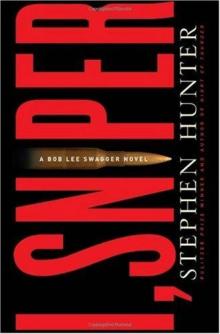 I, Sniper
I, Sniper Havana
Havana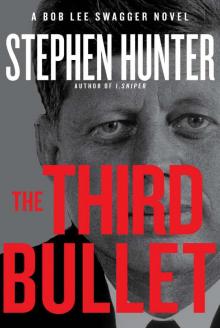 The Third Bullet
The Third Bullet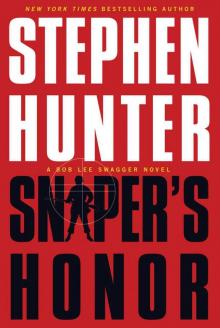 Sniper's Honor: A Bob Lee Swagger Novel
Sniper's Honor: A Bob Lee Swagger Novel Dirty White Boys
Dirty White Boys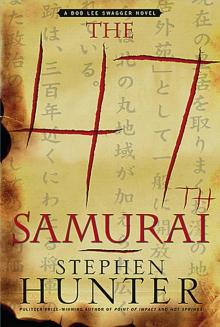 The 47th Samurai
The 47th Samurai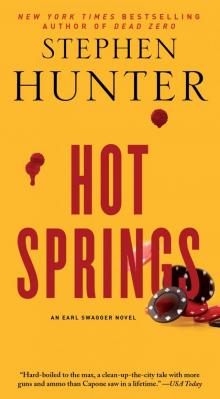 Hot Springs
Hot Springs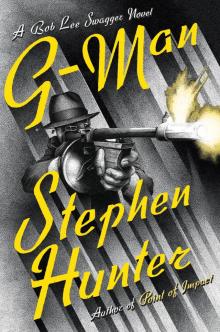 G-Man
G-Man Black Light
Black Light Time to Hunt
Time to Hunt The Day Before Midnight
The Day Before Midnight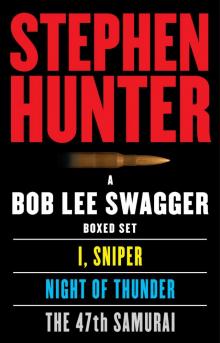 A Bob Lee Swagger Boxed Set
A Bob Lee Swagger Boxed Set The Master Sniper
The Master Sniper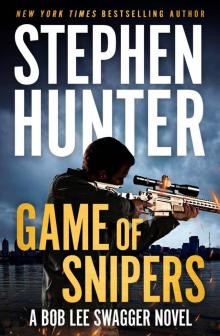 Game of Snipers
Game of Snipers Tapestry of Spies
Tapestry of Spies Citadel
Citadel The Second Saladin
The Second Saladin Stephen Longacre's Greatest Match
Stephen Longacre's Greatest Match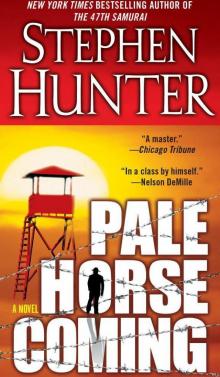 Pale Horse Coming
Pale Horse Coming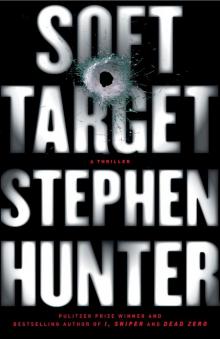 Soft Target
Soft Target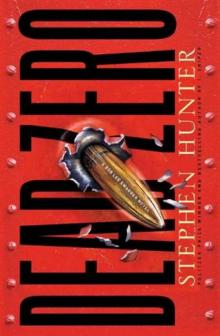 Dead Zero
Dead Zero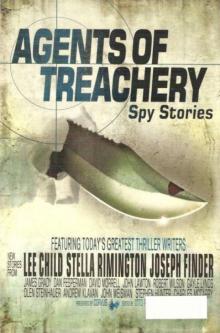 Casey at the Bat
Casey at the Bat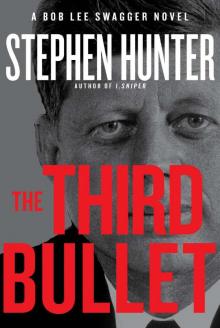 The Third Bullet bls-8
The Third Bullet bls-8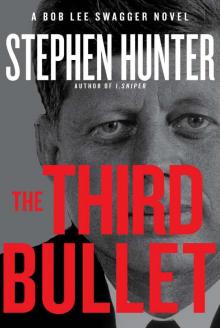 The Third Bullet: A Bob Lee Swagger Novel
The Third Bullet: A Bob Lee Swagger Novel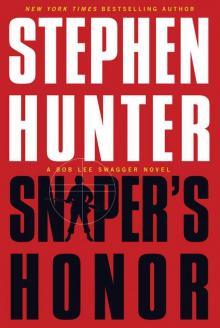 Sniper's Honor
Sniper's Honor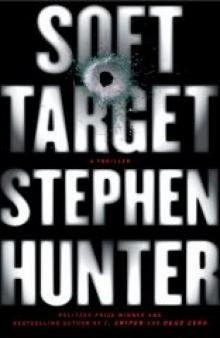 Soft target rc-1
Soft target rc-1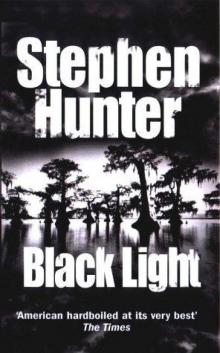 Black Light bls-2
Black Light bls-2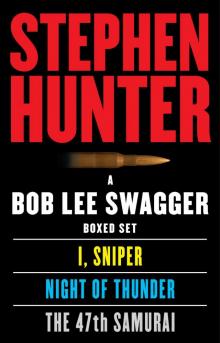 A Bob Lee Swagger eBook Boxed Set: I, Sniper, Night of Thunder, 47th Samurai
A Bob Lee Swagger eBook Boxed Set: I, Sniper, Night of Thunder, 47th Samurai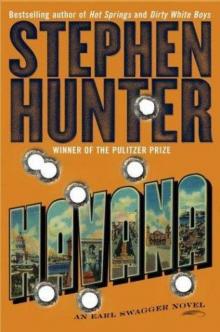 Havana es-3
Havana es-3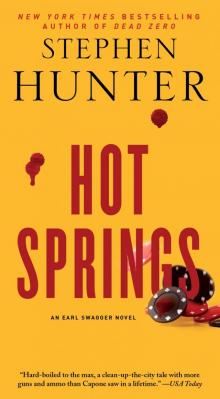 Hot Springs (Earl Swagger)
Hot Springs (Earl Swagger)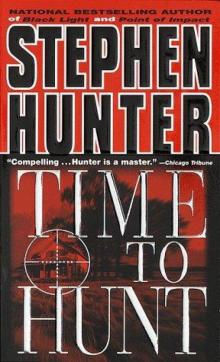 Time to Hunt bls-1
Time to Hunt bls-1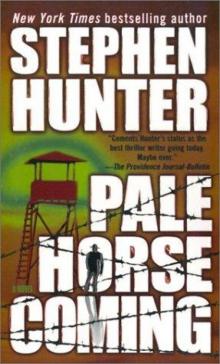 Pale Horse Coming es-2
Pale Horse Coming es-2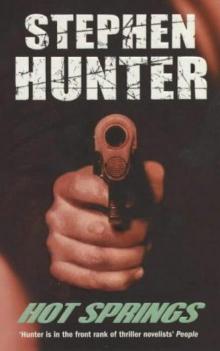 Hot Springs es-1
Hot Springs es-1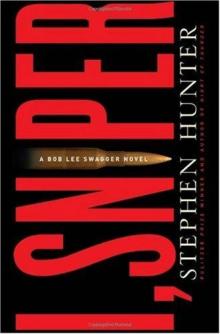 I, Sniper: A Bob Lee Swagger Novel
I, Sniper: A Bob Lee Swagger Novel